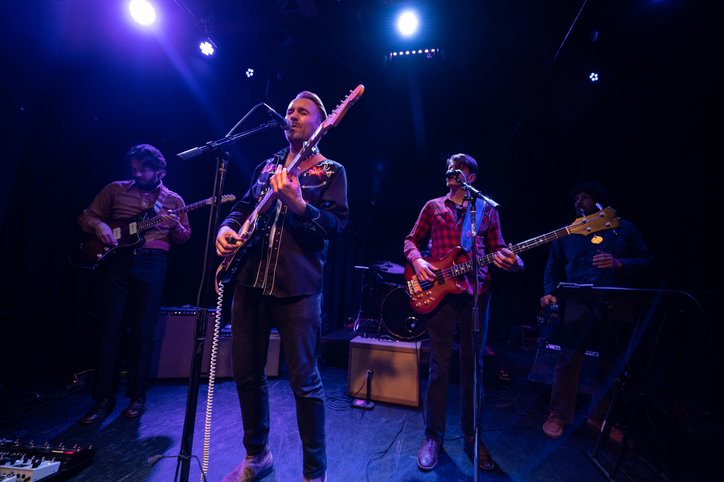With plans for Canberra to become an international destination, we need to step up the options locals and visitors have when venturing out after dark. The ACT Government says developing the city’s unique strengths is a key step to achieving this goal, and has put together a taskforce to work on developing a nighttime scene in Canberra.
At this year’s third annual State of The Territory event hosted by Music ACT last month, members of the Canberra music and entertainment scene came together to discuss the future of live entertainment in Canberra.
The event invites the 1,800 Music ACT members to come along and get involved in panel discussions and connect with other music professionals. This year, the ACT Government asked them to host an event that welcomes industry supporters and venues with a focus of the nighttime economy.
“They wanted an opportunity to communicate a vision for the nighttime economy and we wanted an opportunity to bring in the people that we know across the country, what have they done to establish a special entertainment precinct, what do they know about the value of the nighttime economy,” says Daniel Ballantyne, Director of Music ACT.
Music ACT invited three industry thought leaders and experts to the panel discussions: Brisbane City Council noise and planning specialist Frank Henry, creator of Fortitude Valley Entertainment Precinct; University of Melbourne night-time economy researcher Anna Edwards; and John Wardle, CEO of Live Music Office, which works across the country promoting opportunities for live music.
“Those three people were highly qualified about the nighttime economy and the regulatory and planning environments that encourage music venues, restaurants and other activities at night,” Mr Ballantyne says.
The event aimed to introduce the broader concepts of special entertainment precincts to those involved in the music industry, including performers, venue operators, and those working behind the scenes. They also wanted to reach those involved in ACT planning and economic development, landowners and residents who may be affected by future developments.
According to Mr Ballantyne, while Canberra has many great events, excitement drops dead after 9pm, with only a couple of nightclubs and theatres still operating. He says a thriving nighttime scene requires more than just pubs and clubs staying open late.
“It’s not simply a place for or a time for the alcohol economy, for example, which has often been associated with the live music industry,” he says.
Speaking at the event, ACT Minister for Economic Development, Tara Cheyne, shared the Government’s vision for the nighttime economy. Mr Ballantyne says that at its core, it has Canberra values, with multicultural, safe places, and accessibility at the forefront.
The ACT Government welcomes feedback on the proposed vision through the taskforce that has been established. Mr Ballantyne suggests locals participate in the process as much as they can, stay aware of what is happening, and, most importantly, support activity in the nighttime economy.
“When the opportunity arises, communicate your own Canberra values. What do you want? What do you want it to look like?”
From a purely economic viewpoint, a nighttime economy is an opportunity for growth, says Mr Ballantyne, but it is more than numbers and revenue. The cultural and social impact nighttime activity plays in the community is vital.
“Especially in this post-Covid era, it is an opportunity to socialise and connect and the challenge is to make that easy. I think we have a long way to go to figure out how to do that and that’s why this conversation is important,” he says.
For a live musician, the chance to perform live, often at night, is vital; they can test tracks and get feedback before moving on to recording, explains Mr Ballantyne. However, with the dominance of streaming services, artists are relying more on live performances for income than recording.
“Live performance has become far more important and in Canberra we have a great music scene and a lot of people producing great music, including multiple ARIA Award winners and all sorts of things. But the reality is unless we have more small to medium venues and more public venues of capacity, the music scene will struggle for employment and income.”
From live music venues to theatres or other ideas, what do you think the Canberra nighttime economy is lacking? Have your say via the link on the Vision Statement for the Canberra Night-time Economy here.
Canberra Daily is keen to hear from you about a story idea in the Canberra and surrounding region. Click here to submit a news tip.



